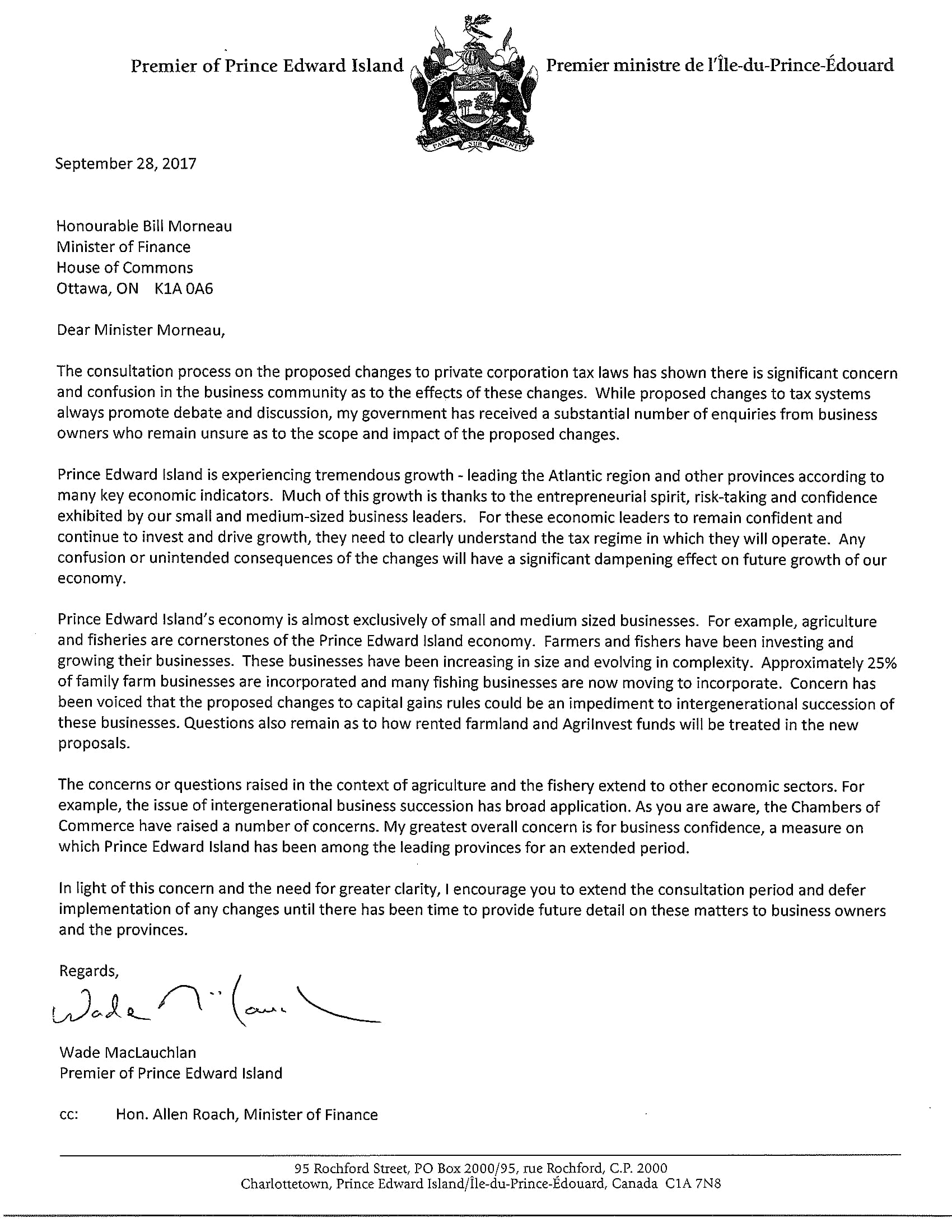New tax rules could limit income splitting and succession planning
By Diego Flammini
News Reporter
Farms.com
Provincial leaders in Nova Scotia and Prince Edward Island are sticking up for their agricultural communities as the federal government moves forward with its tax changes.
The premiers in both provinces, who represent the Liberal party, say they will continue to fight for farmers and small businesses, and that more time is needed to discuss the intricacies of the proposed tax changes.
“I continue each and every day to stand with the farmers that I represent in this House and across our province,” Nova Scotia Premier Stephen McNeil told the Nova Scotia legislature on Sept. 27. “I can tell you that we will continue to make sure that the federal government fully understands the impact of these changes and what we believe they will be on the economy of the province.”
In Prince Edward Island, its premier penned a letter to the federal Minister of Finance Bill Morneau.
Wade MacLauchlan writes that many farm businesses in Prince Edward Island worry about succession planning.
"Approximately 25% of family farm businesses are incorporated," he wrote on Sept. 28. "Concern has been voiced that the proposed changes to capital gains rules could be an impediment to intergenerational succession of these businesses. Questions also remain as to how rented farmland and AgriInvest funds will be treated in the new proposals."

Lettter from P.E.I. Premier Wade MacLauchlan to federal Minister of Finance, Bill Morneau.
What about Ontario?
Two provinces under Liberal leadership have come forward to, at the very least, slow down the federal government’s tax plan.
But will Ontario do the same?
Currently, Kathleen Wynne’s government in Ontario hasn’t come to the defence of farmers, according to Lisa Thompson, the MPP for Huron-Bruce.
“This Premier has imposed a flood of new costs on farmers, and now the federal government is about to attack our farmers with even more taxes,” she said on Sept. 26. “Will the Premier stand up for Ontario farmers, a group she called critical to our economy (during the International Plowing Match).”
Toby Barrett, the Conservative MPP for Haldimand-Norfolk and agriculture critic, also criticized Premier Wynne for not actively standing up to the tax changes.
But the provincial government has had conversations with federal agriculture Minister Lawrence MacAulay to express concerns, according to Jeff Leal, Ontario’s agriculture Minister and Minister responsible for small business.
How would the federal tax changes impact farmers?
The changes would impact a family farm’s ability to operate in a few ways.
First, the idea of income-splitting would be subject to a “reasonableness test.”
Farmers would need to prove that family members are “legitimately earning income by working for you,” according to the Canadian Federation of Independent Business. “If the government says your family members are not legitimately involved, it will force them to pay the top tax rate-regardless of their overall income.”
The tax changes would also make succession planning difficult for farmers, because the changes could make it cheaper for family farms to sell their farms to a third party, rather than leaving the farm to the next generation, Ben Lefort, a senior policy analyst with the Ontario Federation of Agriculture, told CBC on Aug 23.
Finance Minister Bill Morneau has set a deadline of Oct. 2 for the public to submit comments on the income tax changes.
Top photo: Nova Scotia Premier Stephen McNeil